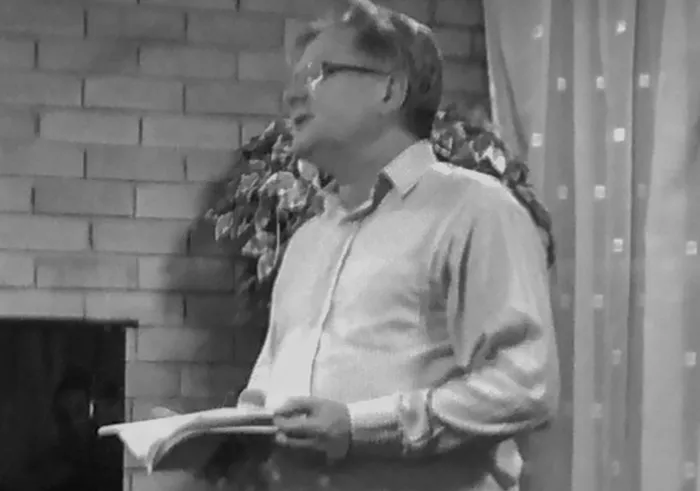Paul Blackburn (1926–1971) was an American poet whose work remains an essential part of 20th-century American poetry. Known for his engagement with modernist traditions, as well as his contributions to the Black Mountain and New York poetry movements, Blackburn was a figure of great significance. His poetry, which captures everyday life, relationships, and urban existence, resonates with authenticity and clarity. Through an exploration of his poetic style, influences, and contributions, this article examines Blackburn’s place among his contemporaries and his impact on American poetry.
Early Life and Influences
Paul Blackburn was born in St. Albans, Vermont, in 1926. His early life was marked by his mother’s encouragement of literature and poetry. His exposure to poetry from an early age shaped his literary interests. He later attended the University of Wisconsin, where he studied under the guidance of poets such as Robert Creeley. This early academic environment fueled his commitment to poetry and set him on a path toward becoming a key figure in 20th-century American poetry.
One of Blackburn’s greatest influences was Ezra Pound. He admired Pound’s ability to shape language with precision and economy. The Imagist movement, which emphasized clarity, directness, and an economy of words, deeply affected Blackburn’s writing style. Pound’s ideologies regarding poetry’s structure and its musicality can be seen in Blackburn’s works, as he too sought a balance between rhythm and meaning.
Blackburn’s Poetic Style
Blackburn’s poetry is characterized by its conversational tone, free verse structure, and attention to the details of everyday life. Unlike some of his contemporaries who leaned toward dense and complex forms, Blackburn’s work was accessible and fluid. His poems often reflected his personal experiences, observations of the urban landscape, and interactions with people.
His use of free verse aligned him with poets like William Carlos Williams, who championed poetry that spoke in the language of the people. Williams’ focus on American speech patterns and Blackburn’s own attention to voice created a distinct yet relatable body of work. Blackburn’s poetry captures the rhythm of conversation, an aspect that makes his works particularly engaging.
One of Blackburn’s most recognized themes is urban life. Living in New York City, he wrote about the city’s streets, its people, and its energy. His poems present snapshots of moments—an approach that resonates with the tradition of Objectivist poetry, where focus is placed on clear and direct expression.
Comparisons with Contemporary Poets
Paul Blackburn was writing during a period of great transformation in American poetry. The mid-20th century saw the emergence of various poetic movements, including the Beats, the Black Mountain poets, and the New York School. Each of these movements played a role in shaping the landscape of American poetry, and Blackburn interacted with many of these literary circles.
The Black Mountain poets, including Charles Olson and Robert Creeley, emphasized projective verse—a concept where the breath and rhythm of natural speech dictated poetic structure. Blackburn’s association with these poets is evident in his own relaxed and spontaneous verse. However, unlike Olson, who often explored historical and philosophical themes, Blackburn kept his poetry deeply personal and observational.
Another group with which Blackburn shared some similarities was the New York School, which included Frank O’Hara and John Ashbery. These poets were known for their engagement with urban culture, a characteristic that also appears in Blackburn’s poetry. However, unlike O’Hara’s often playful and quick-witted style, Blackburn’s poetry was more grounded in realism.
Though he was not directly part of the Beat Generation, Blackburn’s work shares some themes with Beat poets such as Allen Ginsberg. Both wrote about city life, relationships, and the struggles of modern existence. However, where Ginsberg’s poetry carried a sense of rebellion and political engagement, Blackburn’s focus remained on personal and intimate experiences.
Contributions to American Poetry
Beyond his own writing, Paul Blackburn played a crucial role in supporting and promoting poetry. He worked as a translator, bringing the works of Spanish poets into English, thereby broadening the influence of international poetry on American literature. His translations of Federico García Lorca and Pablo Neruda helped introduce these poets to English-speaking audiences.
Blackburn was also known for his dedication to the oral tradition of poetry. He recorded and archived poetry readings, preserving the voices of poets who might have otherwise been forgotten. This effort highlighted the importance of performance in poetry, ensuring that spoken-word traditions remained relevant in American poetry.
Later Years and Legacy
Paul Blackburn continued to write and engage with the poetry community until his untimely death in 1971. His poetry, though not as widely recognized as some of his contemporaries, remains an important part of 20th-century American poetry. His works provide insight into the everyday lives of people, offering a unique and authentic voice.
Blackburn’s legacy endures through the poets he influenced and the recordings he preserved. His contributions to American poetry—both as a writer and as a facilitator of poetic discourse—ensure that his work continues to be studied and appreciated.
Conclusion
Paul Blackburn was a poet of the everyday, capturing the small yet profound moments of human existence. His work stands as an essential contribution to 20th-century American poetry, embodying the qualities of clarity, realism, and musicality. Through his associations with various poetic movements, his dedication to translation, and his preservation of poetry’s oral tradition, Blackburn secured his place in the history of American poetry. Though often overlooked, his influence continues to be felt, making him a poet worthy of continued study and appreciation.

